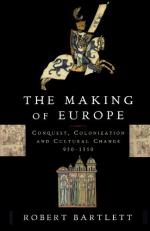|
This section contains 1,615 words (approx. 6 pages at 300 words per page) |

|
Growth of Geographical Knowledge. Between 1750 and 1914 there was a rapid transformation in the scope and detail of geographical knowledge, largely as a result of European empire building and colonization. Imperial governments, trading companies (such as the East India Company), learned and missionary societies, colonial scientists, and solitary adventurers invested large amounts of capital and effort into exploration and cartography. These processes were central to the making of the modern industrialized world as they fixed the location of valuable natural resources (from whale-breeding grounds to mineral deposits), facilitated the creation of new trade routes and posts, and laid the foundations for military conquest, colonial expansion, and colonization by white settlers.
Pacific Ocean. In this period there were two major forms of exploration: oceanic exploration and the exploration of continental interiors. Oceanic exploration largely focused on the Pacific during the eighteenth and nineteenth centuries. By...
|
This section contains 1,615 words (approx. 6 pages at 300 words per page) |

|




